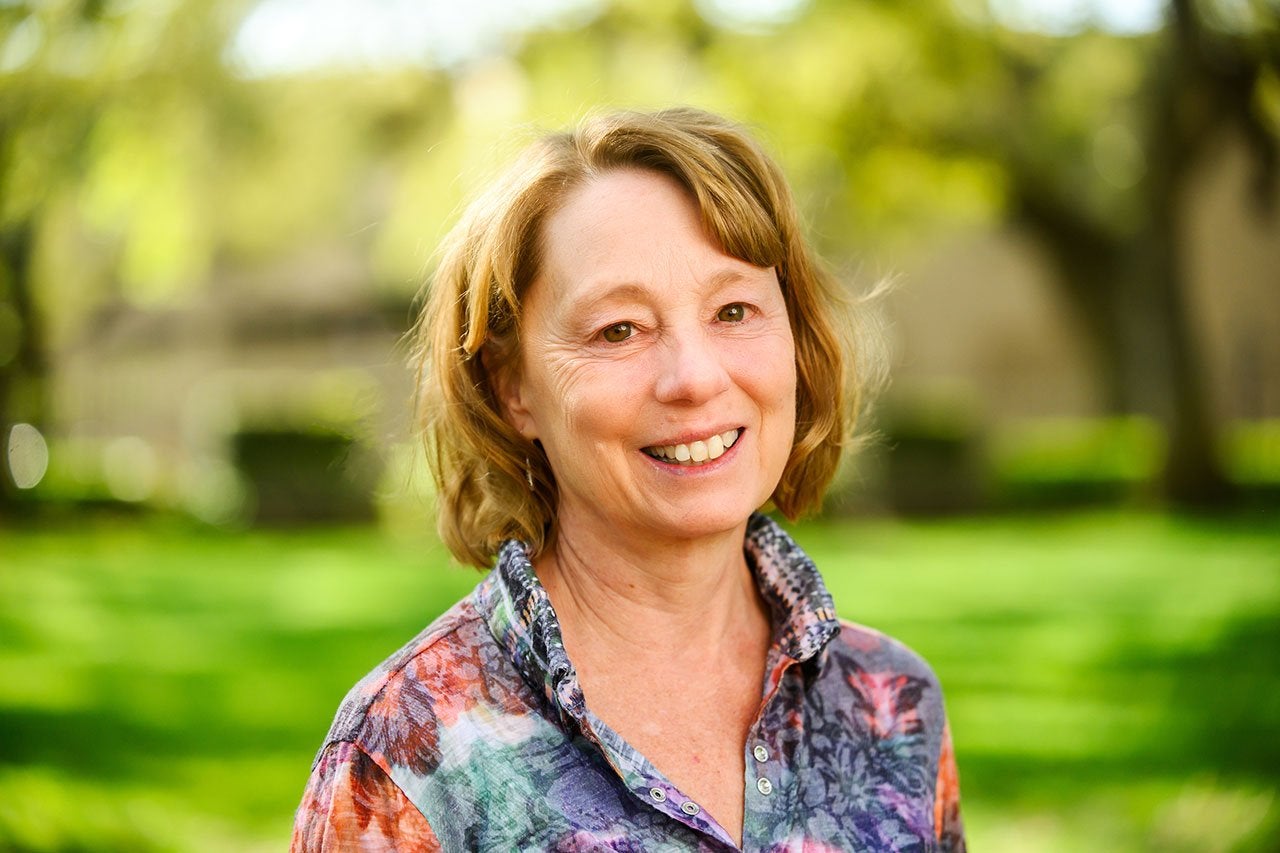“It seemed so out of the blue,” says College of Charleston English Professor Susan Farrell, when asked about learning she had been chosen to speak at this year’s spring commencement. Farrell will address the graduating classes from the School of Humanities and Social Sciences and the School of Languages, Cultures, and World Affairs on May 6, 2022.
Farrell came to the College of Charleston in 1993 after earning her Ph.D. at the University of Texas at Austin. When she went to Austin College for her undergraduate studies, her parents urged her to study math or science, but she was always drawn to the work in her English classes.
“I made the switch to an English major, because I felt I had inspirational professors and I loved reading books and talking about books with others. And that’s what excited me,” she says.
Highlighting the winding road of her career will be part of her commencement address.
“I’ve got a rough idea of what I want to talk about at the ceremony,” says Farrell, but she suspects she might be editing her remarks until the day of commencement.
She knows she wants to delve into how she got into her focus on war literature, despite beginning her career in a different direction. She initially focused on work by U.S. women writers of color, but stumbled into another path that piqued her interest.
“It was actually student influenced,” she says. “A student wanted to do an independent study project on Vietnam war literature. I didn’t know much about this area. But we started reading books for the project, and I got really interested in the fiction, memoir and poetry arising out of the war. I taught my first class in Vietnam war literature as part of a School of Humanities and Social Science themed semester commemorating the 25th anniversary of the Fall of Saigon in 2000.
She adds, “I almost stumbled into Kurt Vonnegut studies, too.”
Farrell is a founding member of the Kurt Vonnegut Society. She proposed a book on author Toni Morrison for inclusion in a series on American writers by Gale, a company that provides research and learning resources. But when execs already had one in the works, they asked if Farrell would instead write about Vonnegut. She already taught his work in her classes, so she took it on.
“That book really led me deeply into Vonnegut’s work,” she says, which led her to found the Kurt Vonnegut Society with other Vonnegut scholars.
At commencement, Farrell wants to talk about how one person can change the trajectory of your whole life – like that student who wanted to study Vietnam war literature 20 years ago.
“Students really have an influence on us,” she says. “We think it’s the other way around, that professors have influence over students. But, they have an effect on us more than they know.”




